Related Research Articles

Dulce María Loynaz Muñoz was a Cuban poet, and is considered one of the principal figures of Cuban literature. She was awarded the Miguel de Cervantes Prize in 1992. She earned her Doctorate in Civil Law at University of Havana in 1927.

Ana María Matute Ausejo was an internationally acclaimed Spanish writer and member of the Real Academia Española. In 1959, she received the Premio Nadal for Primera memoria. The third woman to receive the Cervantes Prize for her literary oeuvre, she is considered one of the foremost novelists of the posguerra, the period immediately following the Spanish Civil War.

María de la Almudena Grandes Hernández was a Spanish writer. Author of 14 novels and three short-story collections, her work has been translated into twenty languages and frequently adapted to film. She won the National Literature Prize for Narrative and the Prix Méditerranée among other honors. Spanish Prime Minister Pedro Sánchez called her "one of the most important writers of our time."
Clara Janés Nadal, born in Barcelona, is a Spanish writer of several literary genres. She is recognised as a poet and is distinguished as a translator of different central European and eastern languages. Since 2015, she has occupied a seat in the Real Academia Española [1], becoming the tenth woman elected as a member of the RAE.
Renée Ferrer de Arréllaga is a contemporary Paraguayan poet and novelist. She is Secretary General of the Board of Governors of the twenty-member Academia Paraguaya de la Lengua Española. Her novel Los nudos del silencio has been translated into French, Italian, and English. On 16 December 2011, Ferrer was awarded Paraguay's National Prize for Literature by President Fernando Lugo. She is married with four children.

Ángela Becerra Acevedo is a Colombian writer. She has won several awards such as the Premio Fernando Lara de Novela in 2019, the Planeta-Casa de América Award in 2009, the Azorín Prize in 2005 and four Chicago Latin Literary Awards, as well as the Premio Iberoamericano Planeta-Casa de América de Narrativa. Her works have been translated into 23 languages and published in more than 50 countries. She is one of the most widely read Spanish-speaking authors, the most read Colombian writer after Gabriel García Márquez, and considered the creator of the Magical Idealism.
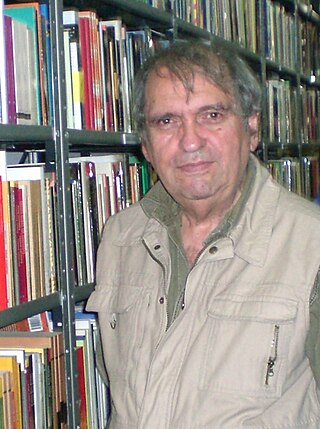
Rafael Cadenas is a Venezuelan poet and essayist.
José García Nieto was a Spanish poet and writer. In 1996, he was awarded the Miguel de Cervantes Prize. Along with Gabriel Celaya, Blas de Otero and José Hierro, he was a member of the post-war generation of Spanish poets.

Margarita Carrera Molina was a Guatemalan philosopher, professor and writer. She was a member of the Academia Guatemalteca de la Lengua and the 1996 laureate of the Miguel Ángel Asturias National Prize in Literature.
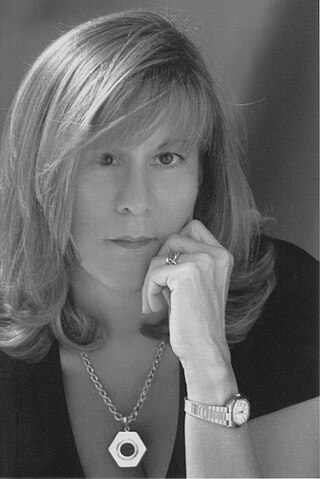
Lourdes Espinola is a Paraguayan poet, diplomat, cultural promoter, and literary critic. Daughter of the laureate Paraguayan writer and philosopher Elsa Wiezell, Espinola's academic background includes the fields of health sciences, international relations, as well as philology and literature, at universities of the United States and Europe.
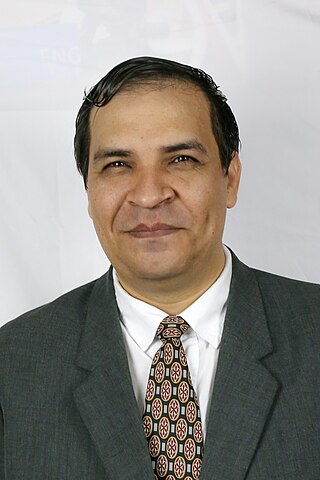
Javier Viveros is a Paraguayan writer, active member of Academia Paraguaya de la Lengua Española, corresponding member of Real Academia Española and former Vice-president of the Paraguayan Writers Society.
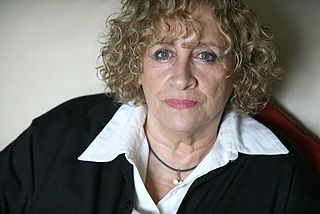
Elena Fernández Gómez, known by the pen name Elena Santiago, was a Spanish writer of novels, short stories and children's literature. She was the recipient of honors such as the Rosa Chacel Award, the 1999 Province of Valladolid Literary Prize, and the Castile and León Award for Letters.
Francisca Rubio Gámez, better known by the pseudonym Fanny Rubio, is a Spanish professor, researcher, and writer, an expert in contemporary Spanish poetry.

Selva Almada is an Argentine writer of poetry, short stories, and novels. She expanded into nonfiction in 2014 with the book Chicas muertas.
María Concepción Leyes de Chaves was a Paraguayan writer, playwright, journalist and lecturer.
Teresa Lamas Carísimo de Rodríguez Alcalá was a Paraguayan author, writing primarily in the genre of costumbrismo. Her book Tradiciones del hogar was the first novel written by a woman in Paraguay.
Marcelina Almeida, was an Argentine-born Uruguayan writer living in Montevideo, since she was young. Almeida used the pseudonyms Abel and Reine mi bella acclamada to sign her contributions in publications of the time. Her work, Por una fortuna una cruz, is considered the first Uruguayan feminist novel.
Margarita Peña was a Mexican writer, translator and researcher, doctor of letters, teacher and emeritus professor at the National Autonomous University of Mexico. Her work focused on Mexican literature of the 16th, 17th, and 18th centuries. Her awards include: Premio Universidad Nacional, Premio de la Cámara Nacional de la Industria Editorial, Premio Huehuetlatolli, Premio de Crítica Literaria, and Premio ComuArte.
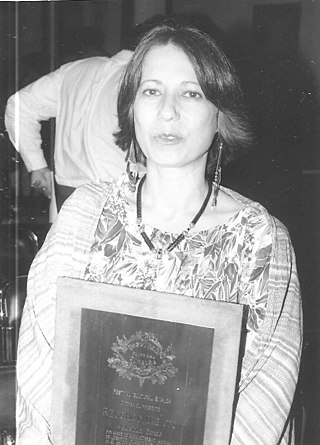
Rosina Conde, is a Mexican narrator, playwright and poet.
The National Prize for Literature is awarded biennially, in odd-numbered years, by the Ministry of Education and Science, to "books in the genres of poetry, narrative, essay, or theater, written in Spanish or Guaraní, by Paraguayan or foreign authors with at least five years of residence in Paraguay." It was established in 1990 by Law No. 97/90, which also created the National Prize for Science, awarded in even-numbered years. This was updated by Law No. 1149 in 1997.
References
- 1 2 3 Homenaje al Escritor Maybell Lebron [Tribute to the Writer Maybell Lebron](PDF) (in Spanish). Senate of Paraguay. 11 November 2015. p. 3. Retrieved 13 September 2022.
- ↑ "Maybell Lebrón" (in Spanish). Portal Guaraní. Retrieved 13 September 2022.
- ↑ "'La lectura me dio un gran crecimiento literario', afirma el fundador del club del libro" ['Reading Gave Me Great Literary Growth', Says the Founder of the Book Club]. ABC Color (in Spanish). 21 September 2005. Retrieved 13 September 2022.
- ↑ Méndez-Faith, Teresa (1996). Breve diccionario de la literatura paraguaya [Short Dictionary of Paraguayan Literature] (in Spanish) (2nd ed.). El Lector. p. 151. OCLC 917215892 . Retrieved 13 September 2022– via Miguel de Cervantes Virtual Library.
- ↑ "Maybell Lebrón y su poemario 'Ayer, tal vez mañana'". ABC Color (in Spanish). 12 October 2003. Retrieved 13 September 2022.
- ↑ "Escritora Maybell Lebrón gana el Premio Nacional de Literatura de Paraguay" [Writer Maybell Lebron Wins Paraguay's National Prize for Literature] (in Spanish). Asunción. EFE. 28 October 2015. Retrieved 12 September 2022.
- ↑ Ferrer, Renée (2 September 2014). "Sobre Poemas, de Maybell Lebron" [On Poems, by Maybell Lebron]. Revista Y (in Spanish). Retrieved 13 September 2022.